- Featured
- Asylum Seekers and Migrants
- Climate and Environmental Justice
- Disability Justice
- Economic Justice
- Education
- First Nations Justice
- Health and Medicare
- International Solidarity
- LGBTIQA+ Rights
- Media and Arts
- Occupational Health and Safety
- Public Services
- Public Transport
- Racial Justice
- Social Justice
- Women's Rights
- Workers' Rights
- More
-
Keep Sydney Water in public hands!The waterways in and around Sydney, as well as the water we drink, are kept safe, clean and affordable by Sydney Water, which operates for the public. Making our harbour, coastline and drinking water a source of profit puts this at risk. If Dominic Perrottet and the Liberals privatise Sydney Water: • Water rates will go up by $264 a year; • Thousands of jobs will be lost; • Our pristine beaches and waterways are at risk. Don’t risk our water. Add your name to send a clear message to the NSW Premier – hands off Sydney Water!4,288 of 5,000 SignaturesCreated by Unions NSW
-
Drop the Charges Against Cherish Kuehlmann!The brunt of the rental crisis is affecting low income renters and working class homeowners. Greedy landlords have jacked up prices and refuse to give up their investment properties to renters who need them. Meanwhile, the top four banks in Australia have raked in $2 trillion from household debt after multiple interest rate rises. The real criminals in this crisis are the banks, landlords and the federal and state government's who do nothing. This charge is an extreme measure and another attempt by NSW police to impede on the right to protest in this state. We will not be intimidated, and will continue to campaign on the streets for affordable housing and all other issues of social justice. The housing campaign in NSW is only getting started and housing activists will return tin bigger numbers on the streets of Sydney.1,586 of 2,000 SignaturesCreated by Gina Elias
-
We Need Both! Online and In-person options for Tertiary EducationOnline options were ‘too hard’ before 2020, and then they came within a week, and then they were taken away as quickly as they were given. Many members of our community depend on these options being available such as those who are immuno-compromised and cannot risk exposure to disease, especially when universities do not have open windows, air purifiers or a mask or vaccine mandate in the classroom. Universal Design (‘UD’) — specifically, Universal Design for Learning (‘UDL’) — is a research-backed pedagogy and curriculum framework which enables equitable access to education for all students, including students with disabilities and other students from diverse, minoritised backgrounds. For disabled students, implementing UDL would ostensibly ensure that they can ‘engage with the curriculum without having to seek adjustments’ (see ‘Recommendations for equitable student support during disruptions to the higher education sector: Lessons from COVID-19,’ Mercer-Mapstone et al 2022,). Hybrid, flexible education — also known as ‘hyflex’ education, as noted in Recommendation 2.1 of the ALSA-AMSA-NUS research report — entails offering educational delivery options for both in-person attendance and Work From Home (‘WFH’). Moreover, hyflex education can facilitate educational participation for not only disabled people but also women escaping domestic family violence (‘DFV’) or sexual assault, First Nations students in regional & rural Australia, international students, and other demographics for whom in-person attendance may not be the most safe & accessible. People from diverse backgrounds have value. Contrary to what many believe, disabled people can (and do) contribute to society and to building a better world. Imagine all the setbacks if Dr Steven Hawking couldn’t come to class because he couldn’t get his wheelchair in the door! Additionally, the tertiary education regulator, Tertiary Education Quality and Standards Agency (‘TEQSA’), has announced that they will now enforce the Education Services for Overseas Students Act 2000 (Cth) (‘ESOS’). Under ESOS in s 8.19, TEQSA is mandating that no more than a third of the education delivered to overseas students can be online or by distance. This decision from TEQSA means that if international students want to access regional, globally ranked education, they must return to Australia whilst there are COVID-19 outbreaks overseas, a rental shortage of affordable, student housing and a cost-of-living crisis. This forces numerous international students into a tricky conflict between their future and their present happiness. TEQSA doesn’t take individual complaints so the regulator cannot protect international students. That is why the government must step up. Likewise, online learning can be better for university staff. University staff with disabilities also face many of the struggles that disabled students do. Likewise, staff with caring roles for children or other dependents benefit from increased access to them by providing education online. Some universities do not have child-care options after 5pm, meaning that staff cannot afford to work a 9-5 with children because they have to rush to collect them. The higher education system relies on these staff and their incredible work to upskill the next generation.252 of 300 SignaturesCreated by NUS Disabilities

-
Demanding Bonus for Sinhala and Tamil New Year -Superstore Workers in Sri LankaThe COVID-19 pandemic-related social distancing and healthcare necessities became a challenge in Sri Lanka. We have been subject to numerous hardships and health-related risks in working on the frontlines supporting the community to continue the ordinary life and providing them with their day-to-day needs. Our hard labour, commitment and loyal services to the supermarkets helped the businesses to continue uninterruptedly retaining customers and recording remarkable turnover for the companies. In the current economic situation and the unrestrained price increases in the necessities, it has become challenging for us to meet our daily life, and our families, too, are struggling to cope with the hardships. Petition addressed to • Dr. Sena Yaddehige – Group Chairman, Richard Pieris Group of Companies • Mr. V Ranjit Page – Deputy Chairman and CEO of Cargills Ceylon Plc • Mr. Krishan Balendra – Chairman John Kells Holdings • Mr. W K H Wegapitiya – Chairman Laugf Holdings Petition in Sinhala & Tamil: http://bit.ly/3GYM2u211 of 100 SignaturesCreated by Pooja Kapahi

-
Our Community, Our Courier! Keep The Ballarat Courier Ethical.Regional and local media is more important than ever. Our regional communities need and deserve journalism that is ethical, independent and trustworthy. Australian Community Media - which owns over 100 regional papers including Ballarat's 'The Courier' is trying to cut important conditions from the workers' Enterprise Agreement. One of these cuts includes walking away from the paper's commitment to abide by the MEAA Journalist Code of Ethics. The Code of Ethics protects sources, readers and journalists, and upholds journalism we can trust. It requires journalists to report honestly, accurately and independently, and upholds transparency and fairness. Removing it means journalists could be asked to prioritise advertising or commercial interests over accuracy and fairness, disrespect grief and personal privacy, place unnecessary emphasis on race, gender or other personal characteristics, or suppress relevant facts. Journalists at The Courier are fighting to protect their ethics, and they need your support. Sign the petition to tell Australian Community Media to support our community and our stories!748 of 800 SignaturesCreated by Media, Entertainment & Arts Alliance
-
Fighting for Fair Visa Processing TimesThere are thousands of people nationwide whose lives are stuck in limbo while they await a visa decision from the Department of Home Affairs. Many have been waiting for years with no response from government. Key points on the 887 visa: · The 887 visa is a pathway to permanent residency for temporary visa holders who have lived and worked in areas of regional Australia. · These temporary visas leave migrants vulnerable to employment, housing, family and financial instability. · 887 visa applicants are forced to live in limbo while they experience endless visa processing delays and backlogs. · The average wait time for the 887 visa is now over two years1,835 of 2,000 SignaturesCreated by Migrant Workers Centre
-
QANTAS: We want a fair deal for all workersWorkers who have been targeted by Qantas only want their right to collective bargain and negotiate their pay and conditions. Australian Services Union members at Qantas are standing shoulder to shoulder to fight this every step of the way. We all work for one airline and have been part of one workplace agreement and one set of workplace conditions for over 20 years. We need a decent pay rise that keeps up with the cost of living not one that sends us backwards. That’s our wages policy. Qantas, workers want a fair deal for ALL staff now.618 of 800 SignaturesCreated by Australian Services Union

-
Stand up for our neighbours, friends and local communitiesRight now, Australia continues to deny a fast and fair process to people who are seeking asylum in our country. Many have been in limbo for over a decade. This prevents people from gaining the stability that refugee status provides. The result is vulnerable people living on the edge for years. Many people seeking asylum and living in the community are also denied access to basic support, including healthcare, housing, education, emergency relief and disability support. This leaves individuals and families with nothing to survive on, except for unfunded support from charities and local governments who are stepping in to help. The Federal Government has a responsibility to support people meet basic needs and live safely in Australia until their status is resolved. Australians support each other in hard times and we are asking the Federal Government to play its part in creating a community where we are all respected. We must act now in support of our neighbours, friends and local community members who urgently need certainty, stability and support to build their lives. Join our campaign at backyourneighbour.com.au. Thank you for your compassion and support. Back Your Neighbour is a coalition of Australian local councils, community services, unions and individuals who support people seeking asylum and refugees. It is auspiced by the Local Government Mayoral Taskforce Supporting People Seeking Asylum.1,100 of 2,000 SignaturesCreated by Back Your Neighbour
-
Stop Paying PipeconBallarat Council giving money to Pipecon is a slap in the face to all of us as Ballarat ratepayers and Victorians. Councillors must immediately review this decision, award the tender for Tait St road reconstruction to another company, and apologise to the community.1,188 of 2,000 SignaturesCreated by James Raynes
-
Climate-proof our homes: Energy efficiency standards for rentals NOWWe spend winters shivering inside beanies, jumpers, blankets, uggs and wooly socks. In Summer we sleep with ice packs. And we pay through the nose for the privilege. More and more renters in Australia are experiencing rental stress - paying more than 40 or 50% of our incomes for homes that barely keep out the weather. Rent is skyrocketing, as are our power bills. Yet renters can’t reduce our bills by installing solar panels, insulation, more efficient hot water systems or by removing gas appliances from our homes. We’re forced to run power hungry space heaters to stay warm only to get hit with enormous power bills. More and more renters are forced to make a choice between staying warm and buying groceries. It’s more important than ever to improve the standards of rentals as power prices soar and home ownership is put further out of reach for young people. Generation United is powered by the United Workers Union. We’re a strong voice for young workers and we’re coming together to tackle the big issues that affect us - at work, at home, in our community and in our environment. Renters are speaking out, our governments must listen and act. These are just some of the stories tenants have shared with us: “The upstairs of our town house would reach over 43 degrees in summer so I slept with ice packs strapped to my body.” - Vic renter “Our house is not at all insulated. The cold days are super cold and the hot days make the house stuffy for weeks” - Aus renter “I have been getting sick once or twice a month from how cold my room gets.” - Krishan, Vic renter “Extremely cold temp in the house in winter and almost unliveable in the summer due to heat.” - WA renter “Window has been stuck open ever since 2020, 8+ requests to close it with no outcome. My 3rd winter wfh now and I have to wear puffer 24/7!” - Aus renter “I have leaks in my ceiling I’ve been complaining about since 2018, which are only getting worse and still nothing done. Can’t use my lounge room at all.” - NSW renter134 of 200 SignaturesCreated by gen united
-
Murdoch Staff are ready to bargain!Murdoch staff have been hit hard during the COVID-19 crisis: enduring staffing cuts, taking on more work, keeping the lights on for students and the broader community while management are seemingly making decisions that don't improve staff conditions or well-being. A university is a place of ideas. Murdoch's 'tagline' is "A place for free thinking" but sadly free thinking comes at a cost and it is a cost borne disproportionately by staff. With an already lean Bargaining Agreement and no real cost of living relief in sight, it's time to support Murdoch staff in their entrenched right to bargain for a more robust Bargaining Agreement. You need to send a message to management – this isn’t good enough, we can’t afford to keep going backwards, we are struggling with the lack of support, and we demand that they begin bargaining NOW. Click the link to sign the petition - send the message to management that we're ready to bargain NOW!42 of 100 SignaturesCreated by NTEU WA
-
Stop Deadnaming at Universities!Our universities are failing when it comes to building inclusive and supporting learning environments for transgender, gender diverse and non-binary students. A recent survey of queer students in Australia conducted by the NUS Queer/LGBTQIA+ Department and RUSU Queer Department identified that every single respondent regularly experienced some form of deadnaming at university. The results from the survey revealed that: 83% of students said there was a persistent deadnaming issue at their university 93% were deadnamed on student facing platforms 20% were deadnamed by staff 43% were deadnamed on university accounts 13% were deadnamed on their student ID With the constant misgendering and deadnaming that occurs on student facing platforms and within classrooms, it is time for this issue to be addressed. We are calling on universities to end deadnaming and change their ways to ensure that the wellbeing of transgender, gender diverse and non-binary students is a priority. Universities have a duty of care towards their students, a responsibility to provide a safe learning environment that minimises opportunities for psychosocial harm. They need to acknowledge that until action is taken to end deadnaming in Australian universities, trans, non-binary and gender diverse students will continue to be at severe risk of bullying, harassment, physical violence and psychosocial harm. It is time for universities to protect vulnerable students and allow them to bring their whole selves to their studies.2,399 of 3,000 SignaturesCreated by NUS Queer/LGBTQIA+ Department

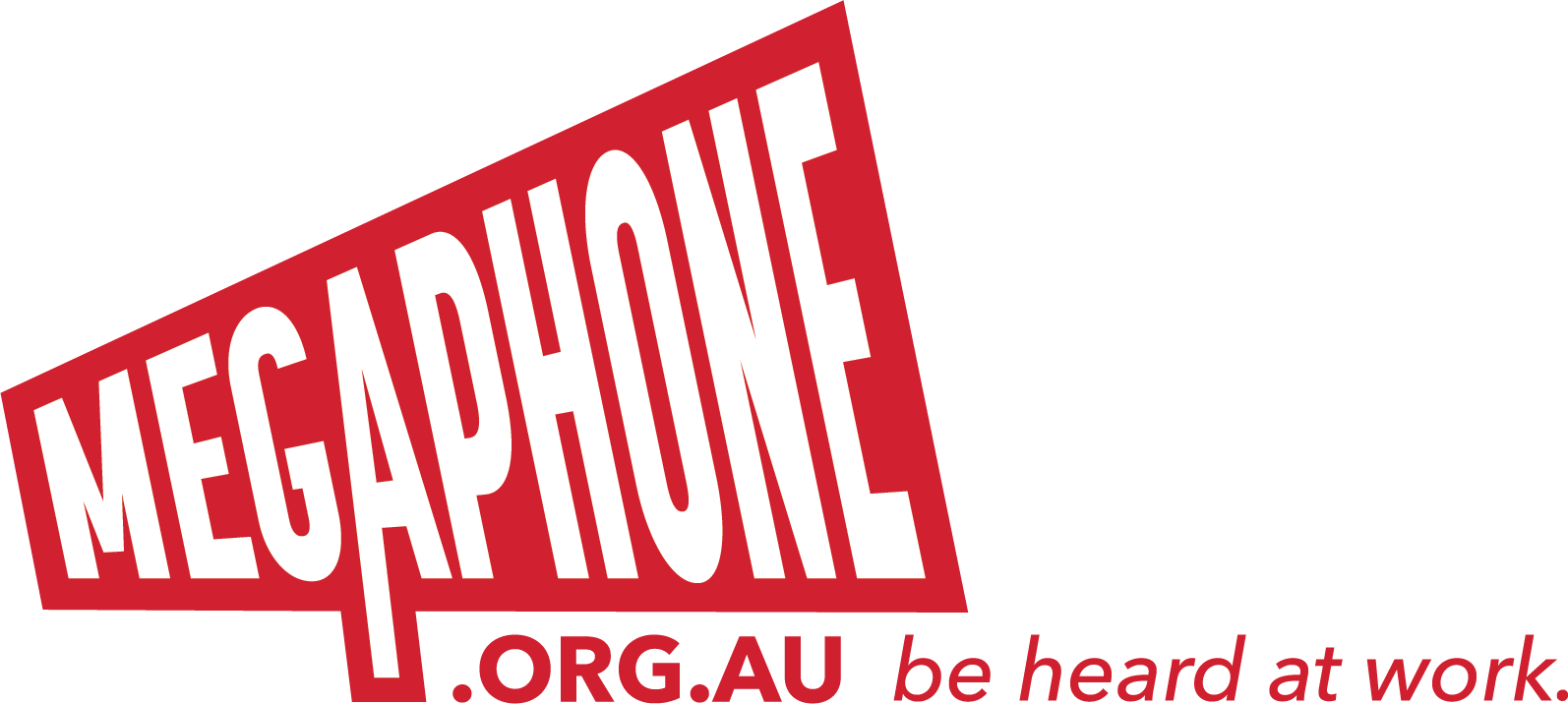
.png)
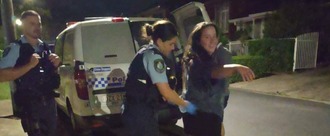
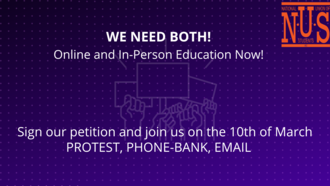.png)
.png)

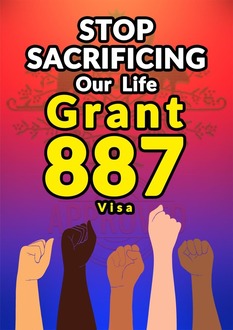
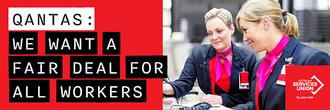

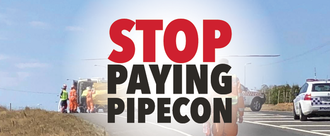


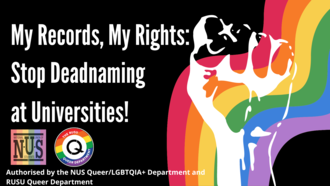.png)